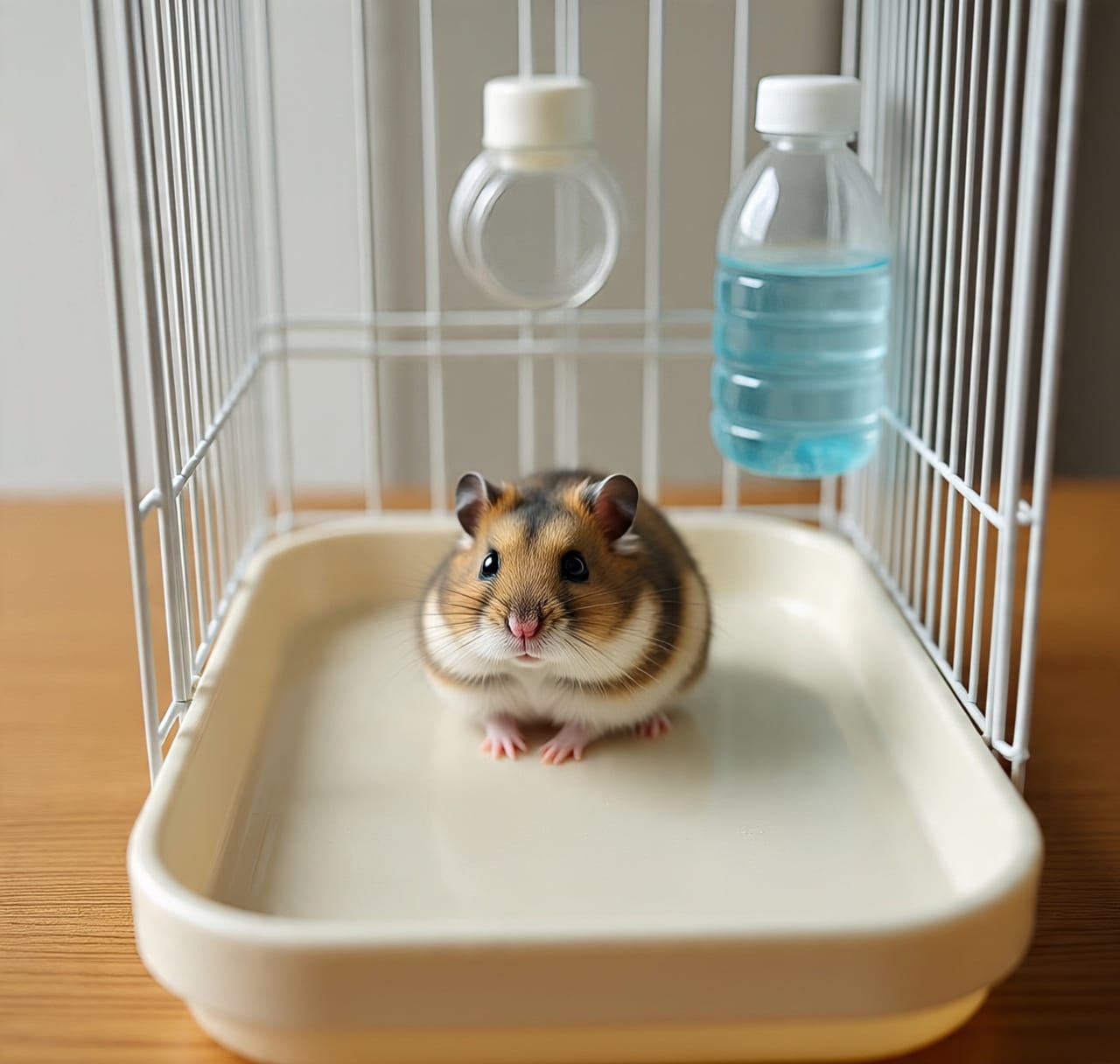Caring for a pet hamster involves more than just providing a cute cage and occasional treats. One vital aspect of responsible hamster ownership is understanding their dietary needs, particularly how long these small creatures can endure without food. The question How Long Can a Hamster Survive Without Food? concerns many hamster owners, whether due to travel, emergencies, or accidental neglect. This article provides a thorough exploration of this topic, discussing the hamster’s physiology, survival limits without food, the importance of water, signs to watch for, and the best care practices to ensure the well-being of these delicate pets.
The Natural Resilience of Hamsters
Hamsters are fascinating creatures, well-adapted to survive in environments where food availability can be unpredictable. Originating from regions with harsh, often dry conditions like deserts and steppes, hamsters have developed survival mechanisms such as food hoarding and efficient metabolism that allow them to withstand brief periods of scarcity.
In the wild, hamsters typically store food in their cheek pouches and bury it in safe places to retrieve later during lean periods. This instinct remains strong among pet hamsters, who often stash food in various hiding spots within their cages. This natural behavior somewhat buffers them during short absences of fresh food.
However, this resilience has limits, with several factors impacting how long a hamster can survive without adequate nutrition.
How Long Can a Hamster Survive Without Food?
Generally, a healthy hamster can survive without food for about three to four days under optimal conditions. This timeframe assumes the hamster has access to fresh water and has previously stocked up on food in its cage, allowing it to nibble on hidden reserves. However, this period varies significantly based on age, health status, environmental conditions, and the hamster’s species.
For example, a robust adult hamster in a stable temperature environment can last this duration without significant health detriments. Yet, young, old, sickly, or stressed hamsters have lower tolerance for fasting and can suffer from complications much sooner.
It is essential, however, to note that surviving does not equal thriving. Even if a hamster lives for several days without food, the experience can negatively impact its health and well-being.
The Role of Water in Survival
Water plays a critical role alongside food in hamster survival. Unlike food, which hamsters can sometimes endure lacking for a short while by using stored fat and hoarded food, water deprivation is much more dangerous and rapid.
Hamsters can begin to show signs of dehydration within 24 hours without water. Lack of water leads to lethargy, sunken eyes, dry mucous membranes, and eventually organ failure if not addressed promptly. Thus, while you might hear about how long a hamster can survive without food, the truth is water access is even more urgent for their survival.
Without water, hamsters generally cannot survive beyond a day or two. That’s why continuous, unrestricted access to clean water is a critical part of hamster care.
Factors Affecting Survival Without Food
Several factors influence how long a hamster can last without food:
- Age: Younger and older hamsters have different metabolic rates and nutritional needs. Babies and elderly hamsters are more vulnerable to starvation effects. Young hamsters are growing and require consistent nutrients, while elderly hamsters may have compromised immune systems.
- Health Status: Healthy hamsters with no underlying conditions handle food scarcity better than sick ones. Ill or weakened hamsters require more frequent feeding and care.
- Species and Size: Different hamster species have varying dietary needs and metabolism speeds. For instance, Syrian hamsters tend to be larger and might endure differently than dwarf hamsters.
- Environmental Temperature: Colder or overly warm environments can stress hamsters, affecting their survival without food. Extreme conditions increase metabolic demands.
- Previous Nutrition: Hamsters that have eaten well prior to food scarcity have energy reserves to draw from, enabling them to last longer.
- Stress Levels: Stress from environmental changes or isolation hampers a hamster’s ability to conserve energy and may worsen effects of fasting.
Signs of Starvation and Dehydration in Hamsters
Owners should be vigilant for warning signs indicating their hamster may be suffering from a lack of food or water:
- Lethargy and Weakness: Lack of energy or sluggish movements suggest the hamster is not getting enough nutrition.
- Weight Loss: Noticeably thinner body or protruding bones.
- Dry or Sunken Eyes: Clear signs of dehydration.
- Lack of Appetite: Refusal to eat when food is available may signal illness.
- Changes in Fur Quality: Dull or matted fur can indicate poor health.
- Excessive Cheek Pouch Activity: Constant stuffing of the cheek pouches could signal anxiety or hunger.
If any of these signs are noticed, immediate veterinary consultation is recommended.
What Happens Metabolically When Hamsters Go Without Food?
When hamsters stop getting food, their bodies begin utilizing stored energy reserves. Initially, glycogen stored in the liver breaks down to provide glucose for energy. Following glycogen depletion, fat reserves become the primary energy source, triggering lipolysis.
Prolonged starvation leads to muscle breakdown and impairment of organ functions, weakening the hamster overall. Immune function diminishment increases susceptibility to infections while gastrointestinal motility slows down, causing digestive issues. This complex metabolic response underscores why even brief food deprivation can rapidly deteriorate a hamster’s health.
How Owners Can Prevent Food Deprivation Risks
The best way to prevent the dangers linked to fasting or starvation in hamsters is consistent care and preparation:
- Daily Feeding and Watering: Ensure fresh food and clean water are available every day.
- Check Food Stash: Regularly inspect and replenish hoarded food within the cage.
- Avoid Over-cleaning: While cleanliness is essential, avoid completely removing all stored food when cleaning the cage; hamsters rely on these caches.
- Emergency Planning: If planning to be away, arrange for someone to feed and water your hamster or provide an automatic feeder and water dispenser.
- Monitor Health Constantly: Observe behavior and physical condition for early signs of distress.
- Provide Nutritious Diet: Supply a balanced diet rich in pellets, seeds, fresh vegetables, and occasional fruit treats to maintain good health.
Caring for Hamsters in Fasting or Illness Situations
Sometimes hamsters may refuse food due to illness or stress rather than actual deprivation. When this happens, owners should:
- Keep offering preferred foods gently to stimulate appetite.
- Provide hydration through softened foods or sugar water as a last resort.
- Minimize stress by maintaining a quiet, comfortable environment.
- Seek veterinary advice for illness diagnosis and treatment.
Understanding the difference between voluntary fasting from illness and accidental lack of food helps owners respond appropriately.
Commonly Asked Questions by Hamster Owners
How many days can a hamster survive without food but with water?
Most hamsters can survive about three to four days without food as long as they have access to water. However, this is not recommended as lack of nutrition weakens them.
Can hamsters survive longer without food if they have hoarded supplies?
Yes, hamsters instinctively store food around their cage, which can prolong survival during food shortages. Still, this should not replace consistent feeding.
How soon will a hamster show signs of dehydration?
Within 24 hours without water, hamsters may start showing dehydration symptoms like lethargy and dry mouth, making water access a top priority.
What if my hamster refuses to eat?
Refusal to eat can indicate stress or illness. Gently encourage appetite with favorite treats but consult a veterinarian promptly.
How often should I feed my hamster?
Daily feeding with consistent access to fresh food and water is essential for optimal hamster health.



